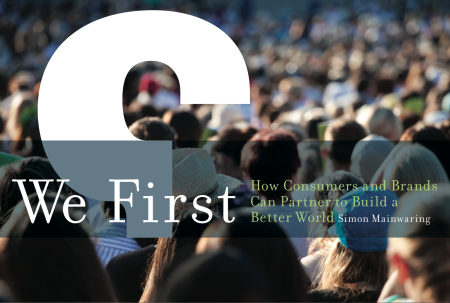
This is an interesting article from Jeff Mason at the Talking Philosophy blog - he wrestles with the difference between our experience of mind-body interactionism and the philosophical implications of such a stance.
Personally, I do not experience any philosophical conflicts with seeing the body/brain, embedded in its social and environmental context, as the mind. But I suspect I am in the minority on this view.
Meditation is one of the easiest and most reliable ways for me to experience the oneness of body and mind - but as I said, body is only one part of mind.
Mind-Body Interactionism
By Jeff Mason ⋅ July 26, 2011It seems natural to speak of physical occurrences and mental processes interacting. I step barefoot on a tack. Unless my foot is asleep, I will feel a pain where the tack has entered. The tack is logically distinct from the sensation of pain caused by stepping on it. Stepping on the tack precedes the feeling of pain. It happens regularly and predictably. Is there something philosophically wrong about speaking this way?
Going in the other direction, imagine waiting for your beloved at the station. The whistle of the approaching train makes your heart go pit-a-pat in anticipation. This would probably stop if Uncle Henry got off instead. Our thoughts, desires and feelings are regularly followed in time by changes in body chemistry and neural activities. We can learn to predict what effects having certain thoughts will have on our bodies.
I remember as a teenager climbing a steep switchback trail rising over 4,000 feet. Trying to keep up with the other back packers, I began to get out of breath, my heart raced and I started to feel dizzy. A friend advised me to listen to my body and find a rhythm of walking that suited me. This turned out to be slow but steady. I was told to count my steps over and over, one to four, in a time that brought my heart rate down and calmed my breathing. This was good advice. My thoughts about hiking changed and so did my body’s response to the task.
From a common sense point of view, there is nothing wrong with talking about physical events causing mental events, or vice versa. Philosophically, however, the theory that mind and body interact is difficult to maintain. One reason may be that the problem arose in the context of Descartes’ dualism. Given his metaphysical position, it is hard to see how there can be any interaction between mind and body, since they do not share any properties. Descartes’ own solution is hard to accept, since it requires occult entities called ‘animal spirits’ that somehow run messages from the mind to the body and the other way around.
However, speaking about mind-body interactions the way we do seems most apt in the examples I have given and many others. Does using the language of mind-body interactions require a commitment to a metaphysical dualism of substance between mind and body? Surely not. When we speak of mind and body, we are not speaking of two separate things. There is only one thing that is in question.
How, then, can there be mind-body interaction if mind and body are really one? I grant that there is a problem here. If mind and body are one, then it is misleading to speak of them interacting as if they were different things. There may, in fact, be no interactions on some metaphysical level, but it is difficult, if not impossible, to describe in any other way the ordinary cases of what we pre-reflectively call ‘mind-body interactions.’ It is sufficient for my purpose to remain at the level of phenomenological description. Looking at how we experience the world, it seems that philosophical identity theories of mind and body make it harder to say what we want to about common appearances of mind body interactions.
It would be so much easier to square identity theories with our experience if we were not inherently temporal beings, living through a sequence of times. In this contingency, we find the mind-body distinction useful to us in a rough and ready way. This is all we need to register the patterns of mind-body interactions that commonly appear to occur in life. We can learn from experience which patterns to cultivate and which to avoid. If I drink too much, I will get a hangover. If I think too long about a personal insult, my heart rate will increase and nasty chemicals will be injected into my body.
The mind-body distinction is ‘thought constituted’ and not a distinction in reality. However, we use the distinction because we find ourselves in a situation where mental processes precede bodily processes, and vice versa. We find it useful to distinguish ‘things’ from ‘consciousness of things’. Experience teaches us the connections. So, in conclusion, we do not have to feel philosophically embarrassed to speak loosely of mind-body interactions. On the contrary, it is for those who hold that mind-body interactions are either senseless or impossible, to explain why it appears that mind-body interactions happen all the time.







